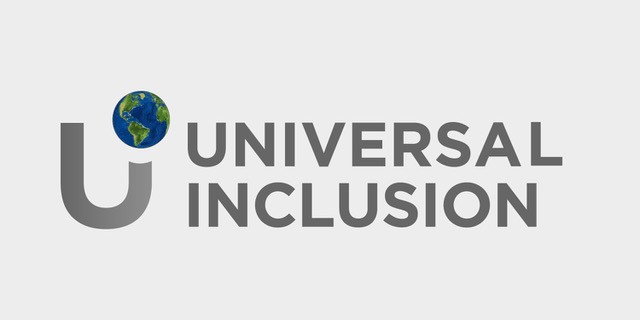I recently spoke at Westminster at a session of the UK All Party Parliamentary Group on Disablity - APPGD - on the concept of Inclusive Economic Growth. In particular I drew attention to how the Department of Business Energy & Industrial Strategy (BEIS) has an ability within its reach to achieve the 2030 Agenda Paradigm Shift from viewing disabled people as care/ tax burdens to that of contributing citizens with rights & protections who will contribute to economic growth.
So why Inclusive Economic Growth?
How is it that the key to this Paradigm Shift, tasked of us within the 2030 Agenda, sits within the BEIS and not the traditional realms of the Department of Work and Pension (DWP)?
What do we mean by Inclusive Entrepreneurship?
It is everything that entrepreneurship can be; a concept, be it in innovation, humanitarian, finance or socially driven. It can lead to very simple practical things such as ring-can-pull or, as I saw one morning, a plaster which when placed on a patient allows the veins to be seen through the plaster, thus enabling the clinician to hit the vein the first time...those of you like me who have endured endless torture sessions in search of veins for blood tests or treatments will appreciate this invention!
It embraces failure as an essential tool towards greater innovation...remember Dyson, Branson, Ariana Huffington, Edison ...the list goes on.
The only and critical difference is that the Inclusive Entrepreneur will require support, both to enter this process or to support others to do so.
The resultant contribution to the growth of the economy is what we term Inclusive Economic Growth.
Government has given a commitment to halving the employment gap that currently exists for Disabled People.
We also know from the Joseph Rowntree Foundation that 1 in 6 people who become disabled in work will lose their jobs within the first twelve months of diagnosis.
The Inclusive Entrepreneur Program, piloted in the UK, identified the key issues faced by Disabled Entrepreneurs and made recommendations to Government on how this could be improved, including a call to place the Access to Work award within what is now BEIS.
The UNCRPD ratification in the UK requires Government to present a rights based response to the employment gap.
If we look at the allocation of funds intended to redress this, we are told by Government that they spend millions on employment support programmes designed to reduce the number of disabled people on out-of-work benefits.This is not an unsubstantial amount until you see what the Government allocates to BEIS to support economic growth. This figures, which is dependant on the various figures released, is between 91.3 and 180 billion pounds.
Sadly, evidence shows us that the Employment Support programmes within the DWP are not having the desired impact in terms of reducing the employment gap. Furthermore, service-user feedback within recent Select Committee Investigations; presentations to the UN Inquiry on UK progress on fulfilling its commitments to the UNCRPD; and subsequent recommendations, all point to disabled people being highly dissatisfied with the current programmes and their internal administration. They are considerd to be more in line with disability related benefit programmes, filled with conflict, sanctions citing recent restructure of the ATW award creating chaos and mistrust.
This is heightened both in occurrence and by way of conflicting criteria for current Disabled Entrepreneurs.
And it is here where I would like to position the Paradigm Shift and outline how BEIS can achieve it.
The workplace is changing. We have seen a huge growth in self employment. Small businesses accounts for approx. 99.3% of private sector business in the UK, 99% of which are SME’s. They total about 15.6 million in total employment in the sector, having a combined annual turnover of approx. 47% of private sector turnover.
When we move out of the realms of the DWP, however, we are met with terminology and working practice which instantly uplifts and implies a sense of value, purpose and hope. BEIS gets it. It comes from a different starting point. It's primary concern is not how much of a burden you are within the Welfare Bill - instead i tconcerns itself with what can you do, how you can contribute to innovation and increase economic growth.
I have outlined below the elements, which will enhance the current portfolio of programmes within BEIS and or inform future development in this area:
- The creation of a task group to champion and enhance existing and future opportunities within BEIS led by Disabled Entrepreneurs.
- Targeted business support programmes which include the management of health and wellbeing alongside traditional start up advice. Which are well publicised, accessible and have the desired level of flexibility that will be required.
- Include elements to fund business compliance, professional development and the day to day management of the award
- Funding for practical support which understand the very nature of Inclusive Entrepreneurship and the complexities for disabled people within the workplace particularly for those who have life limiting and fluctuating conditions.
- Programmes which encourage innovation and recognise value and purpose of failure along the way without penalty or limitation in scope or location.
- Easy Access to mental health support and holistic treatments to minimise impact of managing the day-to-day challenges that come with being an Inclusive Entrepreneur.
- For those who have opted not to apply for Disability related benefits programmes which include funding for personal care, recognise that traditional methods of evaluation and existing benchmarks based on the way non-disabled people run their business.
- Working with Disabled people to develop measures which support innovation and Inclusive Economic Growth.
- Open and realistic pathways both by way of levels of award and autonomy within personalised budgets with quick and easy access to additionality.
- Programmes which encourage innovation and recognise value and purpose of failure along the way without penalty or limitation in scope or location.
- Access to finance programmes which are sympathetic to life experiences and acknowledge most disabled people will not have the financial footprint that traditional funding streams require.
- Funding for practical support, which understand the very nature of Inclusive Entrepreneurship and the complexities for disabled people within the workplace, particularly for those who have life limiting and fluctuating conditions.
Inclusive Entrepreneurship, if supported effectively offers a real and sustainable way forward in reducing the employment gap for Disabled People.
The simple measures suggested can be implemented quickly both within existing and future developments within BEIS and bring about a swift and sustainable way forward for Disabled Entrepreneurs.
In doing so, we will see an end to the current conflicting criteria and restrictive practice currently experienced by Disabled Entrepreneurs the most notable of which has been the rather short sighted insistence within the Access to Work Award that Disabled Entrepreneurs are given less time to evidence business viability than their non disabled peers this criteria is not defined, subject to the discretion of each individual advisor and sadly should this not be evidenced the Disabled Entrepreneur may not try again for 5 years, ( yes not a typo 5 years ).
Some significant innovation comes to mind which would never have come into being had that criteria been applied not least of the very tool and medium I am using to bring this posting to you.
Imagine if the cure for cancer is in the gift of a Disabled entrepreneur not the first time they tried something but the second and we did not go that extra mile to support that innovation.
Crucially and in conclusion the Dept. for BEIS has within its reach an opportunity to embrace this paradigm shift within the 2030 Agenda, is best placed to bring together the partnership between the aspiration of Disabled Entrepreneurs and the practical measures needed to turn this vision of reducing the employment gap into a reality.
If you want support this call to action join the award-winning Actress Julie Fernandez and I as we will host 3 events in the UK. We would love to see you there.


